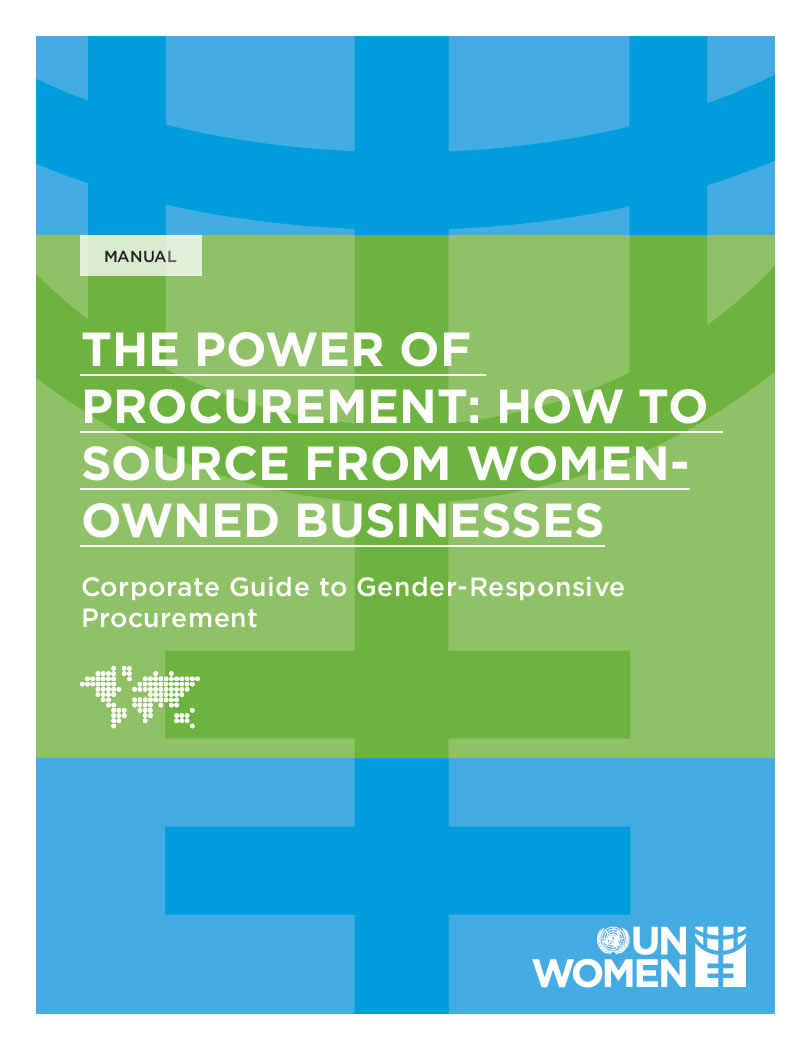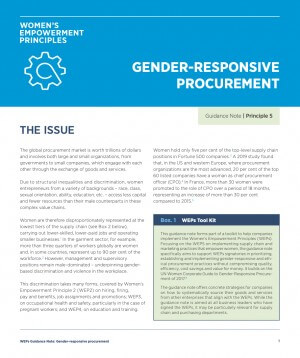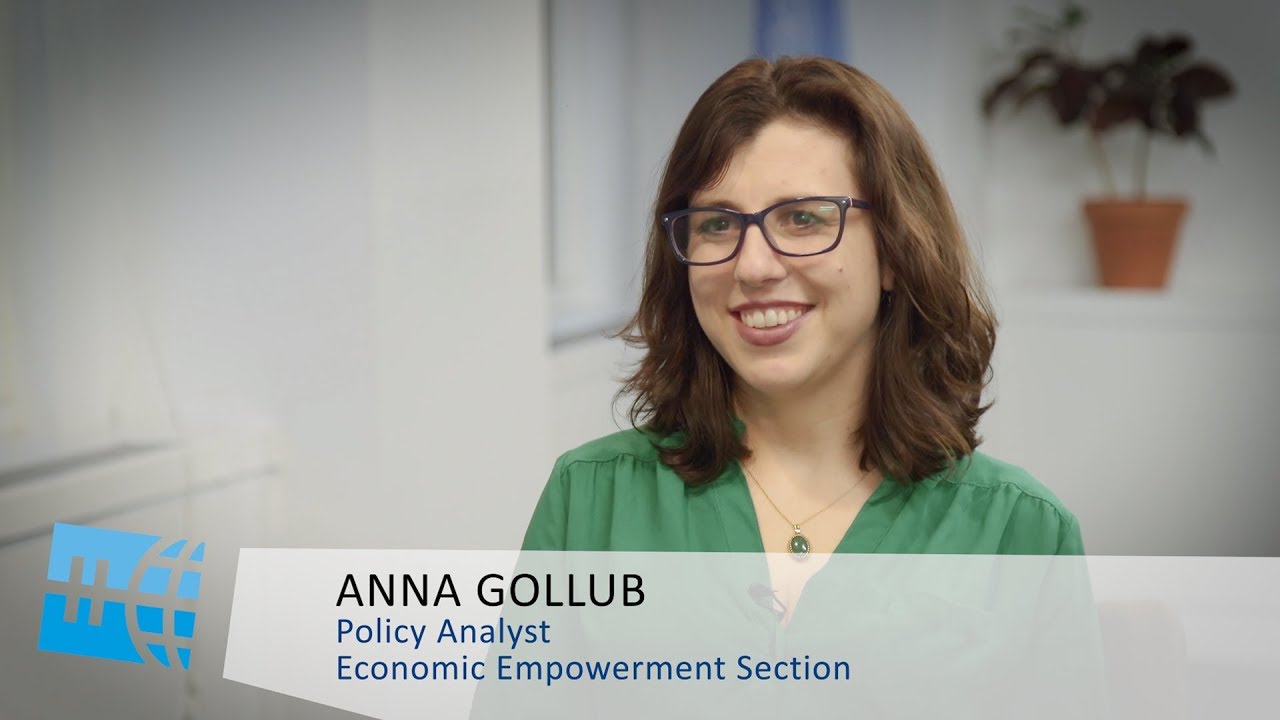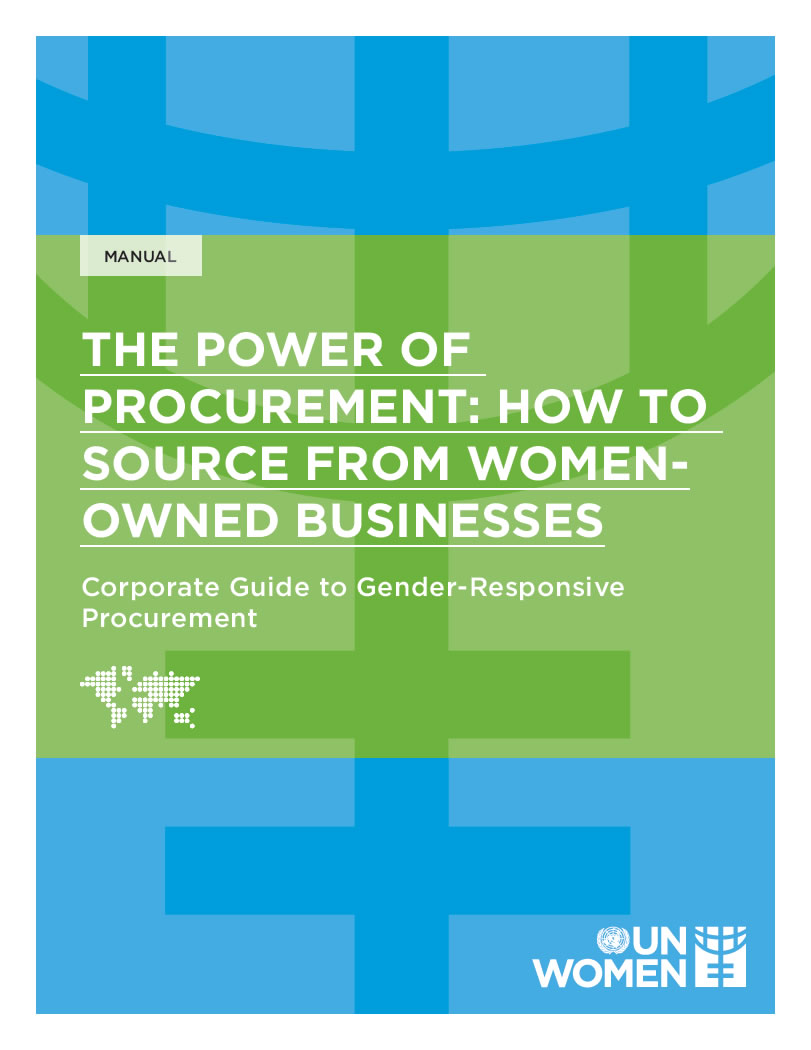Gender-responsive procurement
UN Women strives to ensure that all operations, including procurement processes, support its mandate to achieve gender equality and empower women. UN Women, therefore, endorses gender-responsive procurement as a critical part of the solution for gender equality and women’s empowerment.
Gender-responsive procurement is the selection of services, goods and civil works that considers their impact on gender equality and women’s empowerment. UN Women has implemented tools that will increase women vendors’ business share in UN Women’s procurement spending.
Within the UN system, UN Women has a commitment to promote and enable procurement practices that will improve the degree to which UN procurement processes are gender-responsive. The United Nations, as well as the public and private sector, can use procurement to achieve great socioeconomic change for women and girls on a global scale, by implementing more inclusive processes that endorse supplier diversity.
UN Women’s definition of a women-owned business is a legal entity in any field that is more than 51-per-cent owned, managed and controlled by one or more women. Classification of women-owned vendors allows for collection of data, but also to target assistance and preferential treatment to women-owned businesses, enabling them to compete for contracts and enter the procurement market.
UNGM’s knowledge centre
For United Nations Global Marketplace (UNGM) users, please read what UN Women is doing on gender-responsive procurement and our best practices on UNGM’s Gender-responsive procurement page.
Guide to gender-responsive procurement
UN Women has published a manual on gender-responsive procurement: “The power of procurement: How to source from women-owned businesses”. The manual provides corporations with a deeper understanding of the barriers and challenges preventing women-owned businesses from accessing and fully participating in local and global values chains. It also provides sensible, actionable steps that corporations can take with their strategic sourcing decisions to evaluate the diversity of their supplier base and to increase the share of women-owned businesses in their procurement. Read more ►
Women’s Empowerment Principles
The Women’s Empowerment Principles (WEPs) are a set of principles offering guidance to business on how to promote gender equality and women’s empowerment in the workplace, marketplace, and community.
UN Women suppliers are invited to become signatories to the WEPs by signing the “CEO statement of support”. While voluntary, the commitment clearly signals UN Women priorities to suppliers.
At present, nearly 5,000 CEOs have adopted the WEPs. See examples of companies that exercise good practices.
Guidance note on gender-responsive procurement
The “Gender-responsive procurement guidance note” helps companies implement the WEPs. Focusing on Principle 5, implementing supply chain and marketing practices that empower women, the guidance note specifically aims to support WEPs signatories in prioritizing, establishing and implementing gender-responsive and ethical procurement practices without compromising quality, efficiency, cost savings, and value for money.
This publication offers companies guidance on the following factors to consider when transforming procurement process within an enterprise and across departments: people, policy, practice, communication, knowledge, and stakeholder management. Read more ►
Latest news
Featured video
Featured publication
The power of procurement: How to source from women-owned businesses
This manual provides corporations with a deeper understanding of the barriers and challenges preventing women-owned businesses from accessing and fully participating in local and global values chains. It also provides sensible, actionable steps that corporations can take with their strategic sourcing decisions to evaluate the diversity of their supplier base and to increase the share of women-owned businesses in their procurement.



